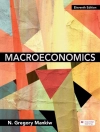Managing Hospitality Organizations: Achieving Excellence in the Guest Experience, Third Edition takes students on a journey through the evolving service industry. Each chapter focuses on a core principle of hospitality management and is packed with practical advice, examples, and cases from some of the best companies in the service sector.
Authors Robert C. Ford and Michael Sturman emphasize the critical importance of focusing on the guest and creating an unforgettable customer experience. Whether your students will be managing a neighborhood café, a convention center, or a high-end resort hotel, they will learn invaluable skills for managing the guest experience in today’s ultracompetitive environment.
Included with this title:
LMS Cartridge: Import this title’s instructor resources into your school’s learning management system (LMS) and save time. Don’t use an LMS? You can still access all of the same online resources for this title via the password-protected Instructor Resource Site.
Daftar Isi
SECTION 1: HOSPITALITY SERVICE STRATEGY
Chapter 1: The Basics of Wow! The Guest Knows Best
Guestology: What Is It?
The Guest Experience
Guest Expectations
Quality, Value, and Cost Defined
The Importance of Guestology
Chapter 2: Meeting Guest Expectations through Planning
Three Generic Strategies
The Hospitality Planning Cycle
Assessing The Environment
Assessing the Organization Itself: The Internal Assessment
Vision And Mission Statements
Developing The Service Strategy
Action Plans
Chapter 3: Setting the Scene for the Guest Experience
Creating “the Show”
Why Is the Environment Important?
A Model: How the Service Environment Affects the Guest
Chapter 4: Developing the Hospitality Culture: Everyone Serves!
The Importance of Leaders
The Importance Of Culture
Culture as a Competitive Advantage
Beliefs, Values, and Norms
Culture and the Environment
Communicating the Culture
Changing the Culture
SECTION 2: HOSPITALITY SERVICE STAFF
Chapter 5: Staffing for Service
The Many Employees of the Hospitality Industry
The First Step: Study the Job
The Second Step: Recruit a Pool of Qualified Candidates
The Third Step: Select the Best Candidate
The Fourth Step: Hire the Best Applicant
The Fifth Step: Make The New Hire Feel Welcome
The Sixth Step: Turnover—Retaining the Best and Selecting People Out of an Organization
Chapter 6: Training and Developing Employees to Serve
Employee Training
Developing a Training Program
Types of Training
Training Methods
Challenges and Pitfalls of Training
Employee Development
Chapter 7: Serving with a Smile: Motivating Exceptional Service
Motivating and Engaging Employees
The Needs People Have
The Rewards Managers Can Provide
Ways Rewards Can Motivate
How Managers and Leaders Provide the Right Direction
Chapter 8: Involving the Guest: the Co-Creation of Value
The Guest Can Help!
Strategies for Involving the Guest
Determining Where Co-Production Makes Sense
One Last Point: Firing the Guest
SECTION 3: HOSPITALITY SERVICE DELIVERY SYSTEM
Chapter 9: Communicating for Service
The Challenge of Managing Information
Information and the Service Product
Information and the Service Setting
Information and the Delivery System
Decision Support Systems
The Hospitality Organization as an Information System
Chapter 10: Planning the Service Delivery System
Planning and Designing the Service Delivery System
Developing the Service Delivery System
Planning Techniques
Targeting Specific Problem Areas in Service Delivery Systems
Chapter 11: Waiting for Service
Capacity and Psychology: Keys To Managing Lines
Queuing Theory: Managing the Reality of the Wait
Managing the Perception of the Wait
Service Value and the Wait
Chapter 12: Measuring and Managing Service Delivery
Techniques and Methods for Assessing Service Quality
Measuring Service Quality After the Experience
Finding And Using The Technique That Fits
Chapter 13: Fixing Service Failures
Service Failures: Types, Where, and Why
The Importance of Fixing Service Failures
Dealing With Service Failures
Recovering from Service Failure
Chapter 14: Service Excellence: Leading the Way to Wow!
The Three Ss: Strategy, Staffing, and Systems
Hospitality and the Future
Leading the Way into the Future
Leading and Managing
It All Begins—and Ends—with the Guest
Tentang Penulis
Michael C. Sturman (Ph.D., Cornell University) is Professor of Human Resource Management in the Rutgers’ School of Management and Labor Relations. His research focuses on the prediction of individual job performance over time and the influence of compensation systems. He also examines the use of HR Analytics and Metrics to improve HR decision-making and the return on HR investments. Michael has published research articles in journals such as the Academy of Management Journal, Journal of Applied Psychology, Journal of Management, Organizational Research Methods, and Personnel Psychology. He has also published practitioner-oriented papers in Compensation and Benefits Review, the American Compensation Association Journal, Cornell Hospitality Quarterly, International Journal of Hospitality Management, Lodging Magazine, and Lodging HR, and is a presenter in Salary.com’s Comp X Compensation Education series. Before coming to Rutgers, Michael was the Kenneth and Marjorie Blanchard Professor of Human Resources at Cornell University’s College of Business, where he held appointments in the Management Area and the School of Hotel Administration, as well as a courtesy appointment with the School of Industrial and Labor Relations. Michael holds a Ph.D., M.S., and B.S. from Cornell University’s School of Industrial and Labor Relations, and is a Senior Professional of Human Resources as certified by the Society for Human Resource Management. He teaches undergraduate, graduate, and executive courses on human resource management, HR analytics, compensation, and analytical methods.












